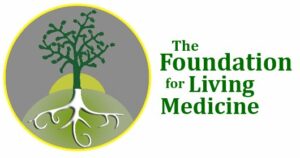
When someone is dealing with a disease, we often hear them discuss it in terms of “War Metaphors,” such as killing the enemy and winning the fight against the disease. Some people believe that the battling words give them the energy and mind-power they need in order to stay positive. It psychologically helps them to build the resilience needed to work through the various treatments for defeating their particular diseases.
But, many scholars and a few medical researchers argue that using these metaphors can be damaging to the patients, particularly when dealing with diseases that may not be entirely curable at this time, such as the Alzheimer’s disease. “If applied in a careless manner, war metaphors can delude our sense of what’s possible therapeutically, and give false hope to people and caregivers who are suffering,” says, Daniel R. George, assistant professor of medical humanities, Penn State College of Medicine.
In a paper, titled, Asking More of Our Metaphors: Narrative Strategies to End the “War on Alzheimer’s” and Humanize Cognitive Aging, from The American Journal of Bioethics, Assistant Professor George and his fellow co-authors recommend using words, such as “postpone,” and “slow,” instead of “prevent” and “cure.” As an alternative to using war metaphors for fighting the Alzheimer’s disease, for instance, they recommend more of a long-term life perspective approach of supporting brain health over the patient’s lifespan and so on. To read more about Assistant Professor George’s paper, click HERE.
ANOTHER PERSPECTIVE
Gladys T. McGarey, MD, MD(H), who is known as the Mother of Holistic Medicine, has another perspective on how we should see and talk about diseases. In short, she recommends a “Living Medicine” model instead of a “Killing Medicine” model of practicing medicine. She says, “when we focus on disease, our energy is directed to what we do not want… the disease, rather than what we want… healing. In Living Medicine, we may still work with a disease, which could require drugs and surgery, but the emphasis would be on being whole and alive, instead of killing. The Living Medicine model recognizes the wholeness of life rather than the absence of disease. It recognizes living as the journey for bringing parts of ourselves back into wholeness.”
Dr. Gladys says, “We know diseases and how to treat them and this is all good, but as long as we continue to focus on what is wrong with our lives and not what is right with them, we will not leave a future filled with life, love and hope.” She adds, “We have become so focused on preventing death that we are killing life. We have a choice. Do we continue to live in a world where the focus of healing is on killing, fear, and hate (anti-biotics, anti-aging, anti-septic, all killing and destructive words)… OR, do we focus on life, living, love, and light? We are building the future that our children will live in, so let’s choose it to promote life and living in love, hope, and joy… in Living Medicine. ” To learn more about Living Medicine, click HERE.
A MATTER OF WORDS
Horseback riders are familiar with the concept that when they move their eyes and heads in a certain direction, it steers the horse to move in that same direction. Accordingly, the words that we express provide the direction in which we go in our lives. What we say ultimately determines our life’s direction and how we see ourselves. Therefore, as we learn to ‘clean up our words,’ there is more opportunity to live our lives in love, hope and joy. This opens up the opportunity to live our lives the Living Medicine way!
Sources
- Daniel R. George, Erin R. Whitehouse, Peter J. Whitehouse. Asking More of Our Metaphors: Narrative Strategies to End the “War on Alzheimer’s” and Humanize Cognitive Aging. The American Journal of Bioethics, 2016; 16 (10): 22 DOI:
- Words Matter When Talking About Alzheimer’s, Science Daily News
- Penn State College of Medicine. “Words matter when talking about Alzheimer’s.” Science Daily, 2 November 2016.
- University of Michigan. “War metaphors for cancer hurt certain prevention behaviors.” Science Daily, 15 December 2014.
